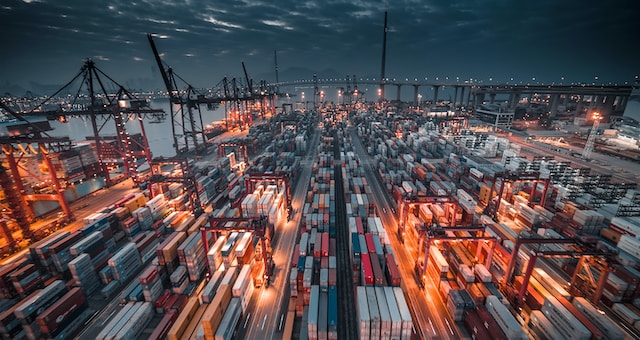Case Analysis of a Soybean Cargo Damage Compensation Dispute in China
This case revolves around a soybean cargo damage compensation dispute, which was adjudicated by the Xiamen Maritime Court. It involved multiple foreign parties (from Brazil, Singapore, Liberia, and Greece), the issuance of an anti-suit injunction in the UK, and London arbitration proceedings.
While defending China’s judicial jurisdiction sovereignty, the Xiamen Maritime Court’s judgment received unanimous recognition from both Chinese and foreign parties, leading the foreign parties to voluntarily comply with the court’s decision.
1. Case Overview
In February 2020, a Chinese soybean importer, Company YC, entered into a sales contract with a foreign entity in Singapore to purchase 69,300 tons of Brazilian soybeans, valued at approximately 300 million yuan. The cargo was shipped by a vessel owned by Company PK, registered in Liberia, and operated by a Greek company, for carriage from Brazil’s Itaqui Port to Songxia Port in Fuzhou, China. In April 2021, during unloading at Songxia Port, it was discovered that soybeans in holds 3, 6, and 7 suffered varying degrees of damage, totaling 27,359 tons.
In March 2022, a Fujian-based insurance company, as the cargo insurer, paid approximately 15 million yuan in insurance compensation to Company YC. Following the payment, the insurance company filed a subrogation claim against Company PK, seeking compensation for the cargo loss, totaling around 15 million yuan, plus corresponding interest. Simultaneously, Company YC, claiming that the insurance compensation was insufficient to cover the entire cargo loss, filed a direct claim against Company PK for approximately 20 million yuan, along with corresponding interest. The total amount claimed in the dispute exceeded 35 million yuan.
In April 2022, Company PK raised an objection to the court’s jurisdiction, arguing that the charter party containing arbitration clauses had been incorporated into the bill of lading, and thus, the dispute should be subject to English law and London arbitration. Consequently, the UK High Court issued an anti-suit injunction in favor of Company PK, ordering the Chinese parties to immediately terminate or abandon the legal proceedings initiated in the Xiamen Maritime Court and take all necessary measures to cease or abandon the proceedings in China.
2. Court Views
(1) Jurisdictional Objection
After examining the jurisdictional objection raised by Company PK, the Xiamen Maritime Court ruled that the charter party’s relevant clauses were not effectively incorporated into the bill of lading. Therefore, the destination port, Songxia Port, fell within the jurisdiction of the Chinese court. The court held that the Xiamen Maritime Court had jurisdiction over the dispute and rejected Company PK’s jurisdictional objection in February 2023. Company PK did not file an appeal.
(2) Cargo Damage Dispute Litigation
The case involved multiple approaches to the assessment of the damaged cargo, making the loss calculation particularly complex. All three parties submitted a considerable amount of evidence, including three different assessment reports with varying conclusions, as well as two expert reports from professional institutions submitted by the shipowner. During the trial, expert witnesses provided by the parties (including surveyors, inspectors, and maritime technical experts, totaling seven individuals) were cross-examined, and the court conducted a comprehensive investigation.
After meticulously analyzing the facts, the court determined the cause of the cargo damage and the appropriate calculation methods and data. The court found Company PK solely responsible for the cargo damage and ordered it to compensate approximately 11.53 million yuan for the loss. Both parties accepted the first-instance judgment, and Company PK willingly complied with the court’s decision.
3. Our Observations
In recent years, there have been frequent import soybean cargo damage disputes, with complexities arising from various factors, including determining the cause of the soybean losses and assessing damages. According to the researched soybean cargo damage dispute cases, there are diverse methods for damage assessment without a unified standard. Many judgments go through appellate or even supreme court review, making first-instance judgments relatively rare.
This case involves multiple international elements, such as the import of soybeans from Brazil, the seller being a Singaporean company, the shipowner registered in Liberia (operated by a Greek company), and English lawyers and the International Group of P&I Clubs being involved on the carrier’s side. Additionally, the case not only triggered Chinese proceedings but also led to the issuance of an anti-suit injunction by the UK High Court and subsequent London arbitration proceedings.
Significantly, the impact of this case’s judgment led to a swift settlement of another soybean cargo damage case involving a Fujian-based soybean importer, with the settlement amounting to approximately 28 million yuan.








